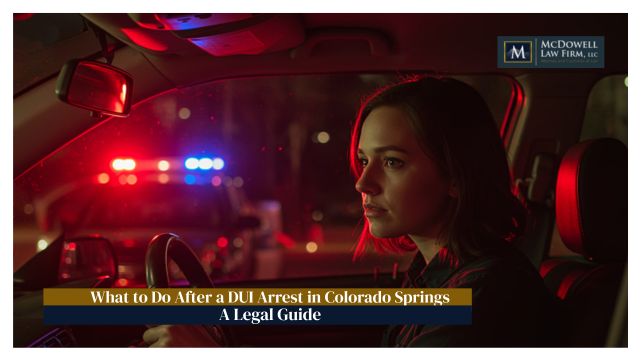Dope, Ganja, the sticky-icky, Jazz Cabbage, Grass, the Devil’s lettuce, reefer, trees, Mary Jane. Today’s blog is about Colorado marijuana driving laws and if you can get a DUI for weed in colorado. Drug laws in Colorado are changing. The legalization of marijuana and decriminalization of some other drugs, like psychedelic ‘shrooms and DMT, show changing ideas on the use of certain substances as medicine.
Remember: If you are 21 or older, recreational use of alcohol and weed is legal in Colorado, but driving under the influence is not.
Being under the influence affects your ability to control and leads to an offense.
So, can you get a DUI for smoking weed? Yes! You can be charged with a DUI if you are physically and mentally unable to operate a vehicle and still try to do so. If you are even slightly impaired you can be charged with DWAI (driving while ability impaired).
Colorado police officers are on high alert for drivers who violate DUI laws. With weed available, the consumption rate goes up. Weed slows down your reaction time and your motor skills and other effects.
According to a recent survey, the Colorado Department of Transportation (CDOT) says 17.6% of Coloradoans are cannabis users. Keep in mind, not everyone charged with a marijuana DUI is guilty. The State needs to prove impairment.
In this post we will explore how and when you can be charged with a DUI for weed. We’ll also go over the penalties, what the police do, and some of the defenses and tips to avoid getting charged and/or convicted.
What is a DUI for Weed?
In Colorado, it’s illegal to drive a motor vehicle or be under the influence of drugs including marijuana. DUID (the last ”D” is drugs) means that a person is substantially incapable of operating a motor vehicle as a sober person would. A “DWAI Drugs”, means they were impaired to at least the slightest degree due to drugs in their system.
Although marijuana is legal for medical and recreational use in Colorado if you are 21 or older, driving after consuming weed can be considered a DUI.
Can you get a DUI for being high on weed or other drugs?
Yes. I defend them all the time. They are more common than you might think. I can follow what drugs are becoming more popular in Colorado Springs by reviewing the drug panels done on my client’s blood. In many cases, when an officer has reason to believe that drugs are causing the impairment (they think more than alcohol is on board), they will require a blood test. Typically, an 11-drug panel is completed on the blood to determine if there were methamphetamines/amphetamines, benzos, cocaine, marijuana, etc. in a person’s system.
Law enforcement officers check for physical signs like reckless driving, bloodshot eyes or sudden slow reaction. Other methods like field sobriety tests or blood tests measure TCH levels in the body.
According to Colorado law, Delta 9 THC is the psychoactive substance in marijuana that causes impairment. The legal limit of active Delta 9 THC (tetrahydrocannabinol) is 5 nanograms (5 ng) or more per milliliter of blood.
For regular weed users, Delta 9 THC stays in their system even when they are not impaired. The newer methods of testing can distinguish between active and inactive tpes of marijuana in a person’s system. Law enforcement officers also rely on their observations for any signs of impairment. (odor, bloodshot eyes, mannerisms, admissions, weed in the car, etc)
If your blood level is below 5 nanograms you might still be charged with a DWAI. From the Colorado DOT website:
The limit in Colorado of active Delta 9 THC in a driver’s blood, which gives rise to a “permissible inference” that the person is under the influence of cannabis, is five nanograms or more per milliliter in the whole blood.
Drivers can be arrested and cited for impaired driving if law enforcement observes and documents driver impairment to any degree, even with a blood level below 5 ng of Delta 9 THC.
When Can You Be Charged With a DUI for Weed?
Law enforcement officers are trained to determine if an individual is driving under the influence of drugs. The police department has drug detection specialists, called Drug Recognition Experts (DRE), who are trained to detect the substances an individual consumes.
Every state has its own rules for impaired driving offenses. All states have laws that prohibit DUI of weed. The conditions that can get you charged with a DUI for weed are categorized into –
DUI Per Se
Some states have DUI per se laws for weed. In these states, there is a limit on the amount of THC or marijuana in your system. When you exceed that amount, you will be charged with DUI per se charges. Generally, the limit is between 2 ng/ml to 5 ng/ml.
Reasonable Inference
In Colorado State if you have more THC in your blood than the legal limit there is a “permissible inference” that you are under the influence of THC.
DUI Based on Impairment
If there is evidence of weed consumption, and you are impaired, it’s considered a DWAI. Whether you only smoked weed, or used it with other drugs/alcohol, you can be charged.
Evidence of Impairment
What are law enforcement officers looking for in DUID and DWAID cases reasons for stops in DUID and DWAID cases include:
- You broke Colorado traffic laws
- Weaving in and out of your lane
- You drove too fast or too slow
- You had bloodshot eyes and slurred speech
- The officer smelled marijuana in the car
- There was marijuana paraphernalia in the vehicle (rolling papers, joint clip etc.)
- Marijuana was found in your car
How is Impairment from Weed Measured?
Can you be charged with a DUI for smoking weed while driving? Yes, you can. How is it determined if someone is too high to drive? In Colorado, the state does a blood test as the primary test for drug use.
A trained DRE officer may also do a series of tests (roadside sobriety or FSTs)on the side of the road. These include things like eye movement and coordination tests.
Field Sobriety Tests (FSTs)
The field sobriety tests, also known as Standardized Field Sobriety Tests, test the physical and mental abilities of the drivers. These tests include –
- Eye examinations: The experts look for impairment signs through different eye movements.
- Physical coordination tests: These tests include things like walk-and-turn test or standing on one leg. The tests are done to check balance and motor skills
A drug recognition expert (DRE) is an officer who is highly trained to do DUI field sobriety tests for weed and other drugs. The Standardized Field Sobriety Tests are designed to test whether you are under the influence of depressants or stimulants. If you are charged with DUI of weed, assessing the investigation and determining if the officer is well-experienced in drug recognition is key. You need to know if the officer is trained or not and if he followed the correct protocols.
Chemical Tests-
- Blood tests – Generally, blood tests will show THC and its metabolites. THC can be detectable even after the psychoactive effects are gone. It can be found as “active” in your blood for over 12 hours and longer for chronic users. People with more body fat will have THC in their blood for a longer period. Tests can determine the difference between active and inactive marijuana in blood.
- Urine tests – Urine tests also show weed consumption; however, they have challenges in determining impairment while driving. Urine testing can find weed in users for 3 days and chronic users for over 10 days. Hair samples can detect weed use, but they are not suitable for DUI cases.
How Do Police Detect Marijuana Use?
There has been a surge in DUI cases involving marijuana use since many laws have been relaxed on its use and possession. According to Colorado State law, it is a crime to drive under the influence of weed and other drugs
In marijuana cases, the police and prosecution must provide evidence that the driver was not in proper condition to drive (impaired or under the influence)
Officers can look for signs such as poor driving, odor of marijuana, red eyes, unusual speech patterns, and muscle tremors. If an officer has probable cause for charges, a person may be required by Colorado’s express consent law to provide a sample for chemical testing.
Penalties for a DUI of Weed
According to Colorado Revised Statute 42-4-1301 a driver can be found guilty of driving under the influence of marijuana and/or other drugs. The influence of weed and drugs makes them severely incapable of being physically and mentally able to operate a vehicle safely. It can lead to erratic driving and can cause accidents.
Can you get a DUI for driving high on weed? Yes. Colorado State has severe consequences for DUI of weed to prevent people from using it. A 4th DUI/DWAI of weed is a class 4 felony and can be sentenced to 2 to 6 years in state prison. It can also be fined $2,000 to $500,000.
Here are the penalties if you are found under the influence of weed or alcohol –
| Misdemeanor Offense | Jail Sentence | Can a judge suspend minimum jail? | Probation | Fine | Public Service | License Revocation (early reinstatement will apply) |
| 1st DUI of marijuana | 5 days – 1 year | Yes, it can be suspended with alcohol/drug evaluation and proper alcohol education | Up to 2 years | $600 – $1,000 | 48 – 96 hours | 9 months |
| 1st DWAI of marijuana | 2 days – 180 days | Yes, a judge can suspend jail, with alcohol/drug evaluation and alcohol education | Up to 2 years | $200 – $500 | 24 – 48 hours | none |
| 2nd DUI/DWAI of marijuana in 5 years | 10 days – 1 year | No, the judge cannot suspend all jail. | 2 – 4 years | $600 – $1,500 | 48 – 120 hours | 1 year |
| 2nd DUI/DWAI of marijuana after 5 years | 10 consecutive days – 1 year | No, though court can grant home detention | 2 – 4 years | $600 – $1,500 | 48 – 120 hours | 1 year |
| 3rd DUI/DWAI of marijuana | 60 consecutive days – 1 year | No, though court can grant work release. | 2 – 4 years | $600 – $1,500 | 48 – 120 hours | 2 years |
License Revocations under Colorado Marijuana Driving Laws
Here is where marijuana (and other drugs) and alcohol differ. There is no “per se” legal limit for any drug other than alcohol, when it comes to driver’s license per se revocations. Yes, you can still be revoked if you plead to a DUI, but not through a DMV per se action. If your BAC is a .08 or greater, within two hours of driving, you’ll receive an administrative revocation action against your license. But with weed or other drugs, there is no per se limit for a DMV action. There is a limit for marijuana in your system (5 ng) but that won’t trigger a separate DMV action like alcohol will.
Defenses against a Weed-Related DUI Charge
If you are charged with marijuana DUI in Colorado, there are various defenses an experienced attorney can use. In these “weed DUI” cases, your attorney will argue to prove you were not impaired while driving. A strong defense and a good lawyer may get your charges reduced or even a dismissal, depending on the facts of your case. The lawyer will have a strategic approach, using effective defenses to protect your rights and challenge the prosecution’s case.
The defenses used against a weed-related DUI charge are –
- The police officer can’t provide a proper justification for the stop or test when cross-examined. Generally, the officers arrest people based on their uncooperative behavior rather than signs of impairment. If your attorney can prove to the judge you were improperly stopped your whole case may be dismissed as a 4th Amendment violation.
- Should you take DUI field sobriety tests? They are voluntary. In most cases, I don’t think it’s a good idea to participate in voluntary FSTs. If you do take the tests, hiring a good attorney will help you prove the field sobriety tests were not conducted properly. You can use dash cam and body cam footage of the police officer to prove they gave you incorrect instructions or that they were unfair in their subjective analysis of your abilities. If you can convince the DA of improper action during the investigation, they might dismiss or reduce your charge to a minor traffic violation.
- Your attorney could prove the procedures used during the blood test were incorrect. Maybe your sample was contaminated, or there was a break in the chain of custody. Once your lawyer proves to the judge your sample was, they should exclude it as evidence.
- If you have a medical condition that looks like being impaired, it can be a strong defense. For example, if someone has seizures or diabetic comas and is mistaken for being high, your case will be closed. Even if you are feeling sick or tired it’s not a DUI. It’s a minor traffic violation and charges will be dismissed.
- In some cases, DUI lawyers analyze the use and administration of breathalyzers or other chemical tests. Any defect or malfunction of these devices can give you an incorrect BAC reading. If any error occurs during the handling or analysis of bodily fluids, it can effect your case
Tips to avoid a Marijuana DUI
Prevention is always better than cure. Don’t smoke and drive.
There are ways to stay safe and legal. Colorado has strict laws on cannabis use so be aware of the consequences.
Some tips to avoid a DUID are –
- Make sure there are no open alcohol containers or marijuana in your vehicle. Colorado has a strict law on open containers which prohibits them in the passenger compartment of the vehicle. If law enforcement sees an open container in your vehicle, they might give you a ticket or suspect you of driving impaired. Avoid these by transporting sealed containers of alcohol or marijuana and always store them in the trunk.
- In Colorado, police can arrest someone suspected of being impaired or intoxicated by marijuana for DUI. “Impaired” in this case means impaired to the slightest degree. You can be impaired even after you feel the effects of being high or drunk wear off. So, you need to have a plan for these situations as you might not make good decisions in this state.
- Be aware that legally prescribed medications can impair you. Multiple prescription medications can affect your driving abilities, across many drug categories. Some of them are antidepressants, anti-anxiety drugs, sleeping pills, opioids and stimulants as stated by the FDA. These medications have warning labels telling you not to drive or use machinery until you know how it affects you.
- Be careful when approaching DUI checkpoints. In most cases, they stop every vehicle that passes through the checkpoint. When going through the checkpoint, slow down, pay attention, and follow all instructions from the police. If you get charged with DUI or DWAI contact a lawyer immediately.
Drive Safe and Avoid Drug-related DUIs and DUIDs with the McDowell Law Firm!
Weed DUI is a complex aspect of law enforcement and public safety. With cannabis legalization on the rise, it’s important to know the risks, consequences, and prevention.
Are you wondering how to beat a DUI for smoking weed? Contact us at the McDowell Law Firm and our criminal defense lawyer will assess your situation and build a defense for you. Call today for a free consultation.
At McDowell Law Firm we represent the legal rights of those injured in accidents. We can help you assess your situation and take all the necessary steps to protect you.
Do DUI lawyers get your drunk driving charges dropped? Yes our expert lawyers will get you the best result!
Frequently Asked Questions (FAQs)
1. Does weed show up on a DUI blood test?
Yes, if the police run the THC tests on the blood. Testing methods now can show active and inactive THC in the blood. If you are driving impaired you will get arrested and charged with DUI. If THC is found in your system, you may get a DUI or DWAI charge.
2. How do they test for weed?
In Colorado state police officers do blood tests to see if there’s weed/THC in your blood. If the officer has probable cause that you are impaired while driving you will get charged with DUI. Once the driver gets arrested the individual must submit to chemical testing under express consent. Unlike with alcohol DUI there’s no option to choose between a breath test or blood test. (drugs are blood test only). You can legally refuse to cooperate with chemical testing, but can face additional license (DMV) consequences, and still be charged with a DUI.
3. Can the police pull you over if they smell weed?
Police need reasonable suspicion to stop you and make contact. If the police were able to see enough evidence to show that you might be smoking marijuana while driving, the officer could likely articulate that basis for a stop to the court.
4. Will THC edibles show up in your blood?
Yes, they can. Whether you smoked the marijuana or ingested it a different way (like gummies, pot brownies, etc) it can show up in your system on a blood test.
5. I have a prescription for marijuana. Can I smoke and drive?
A Rx for marijuana allows you to purchase and use marijuana as prescribed by a doctor for health concerns. It does not give you a free pass to drive while high. Never drive while high.




